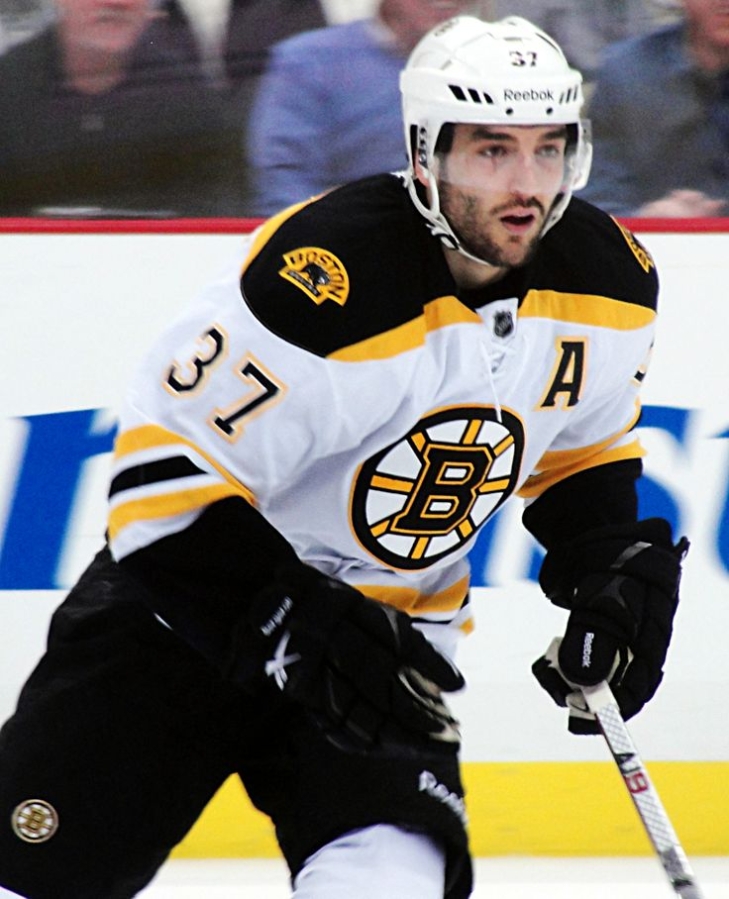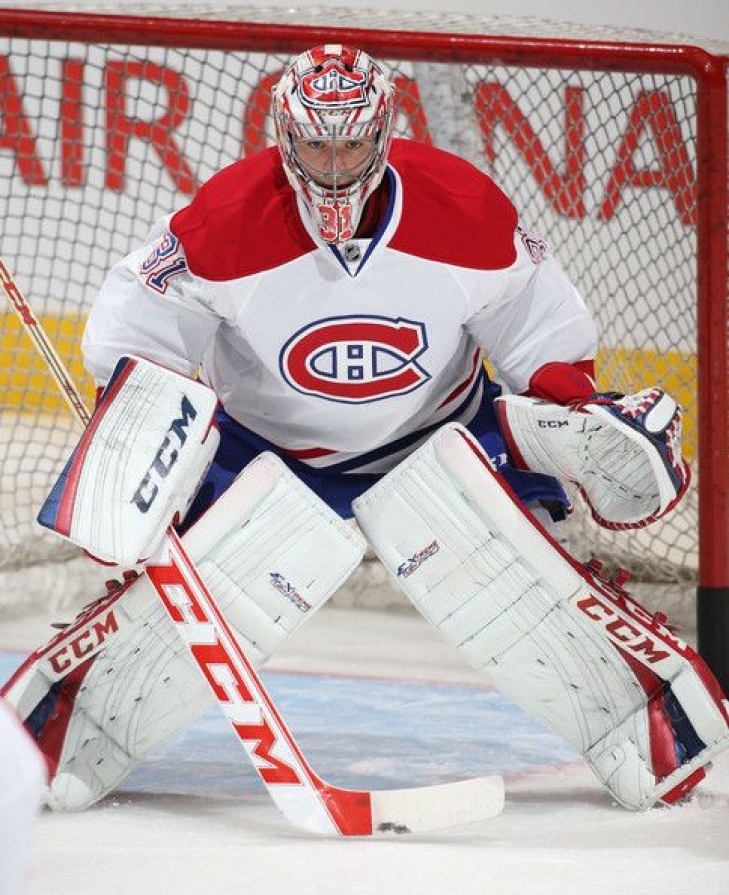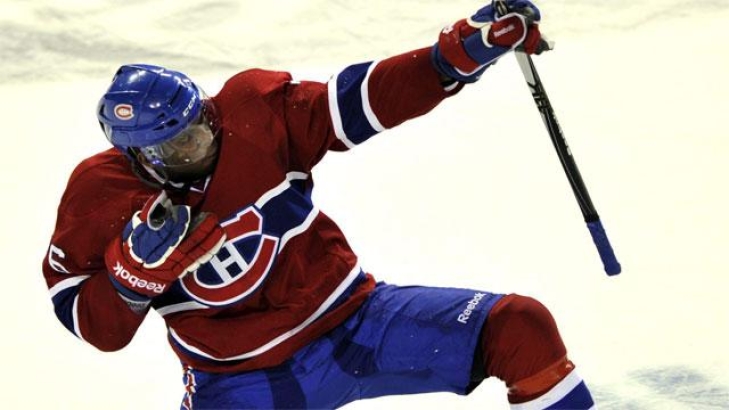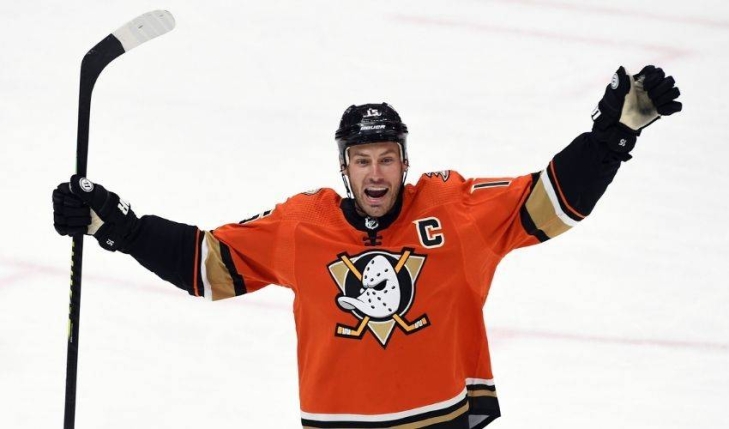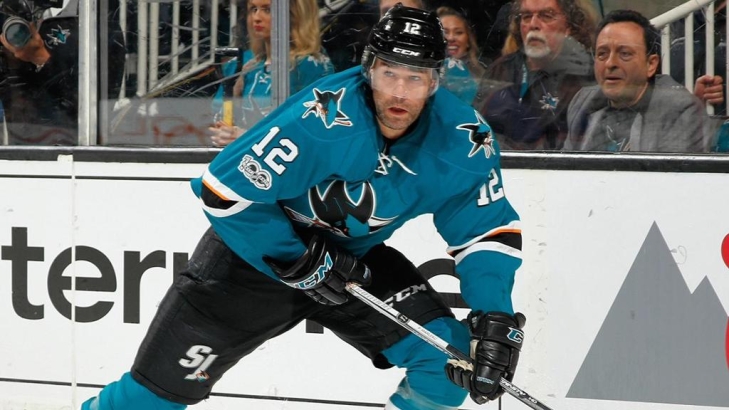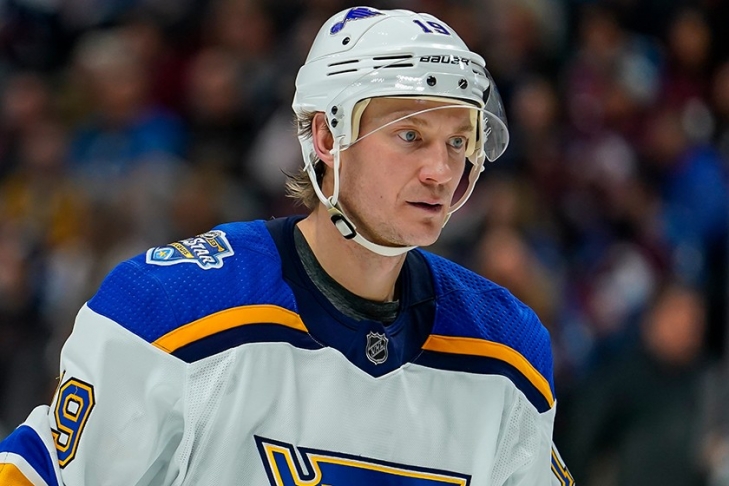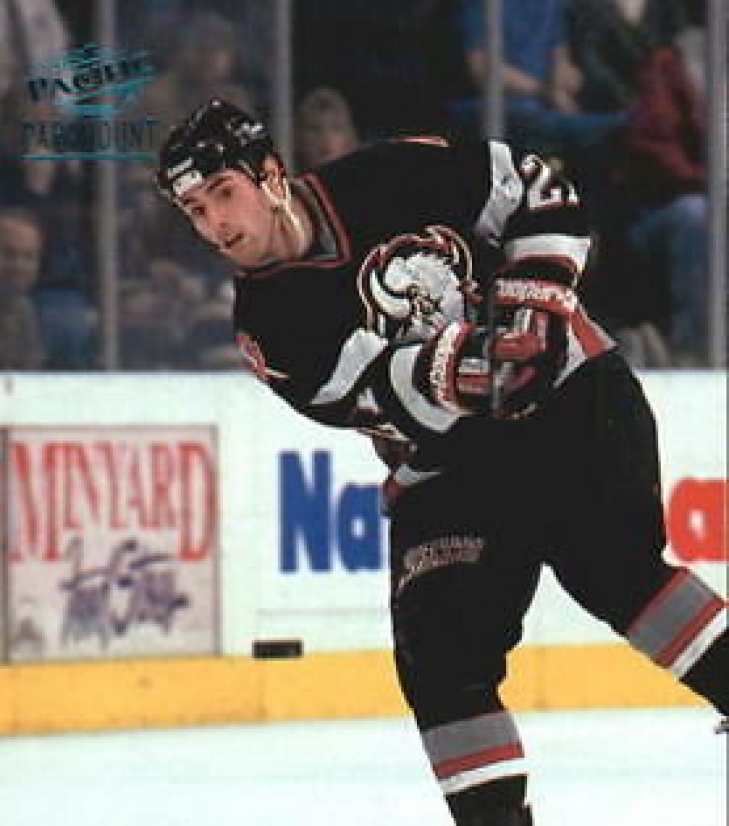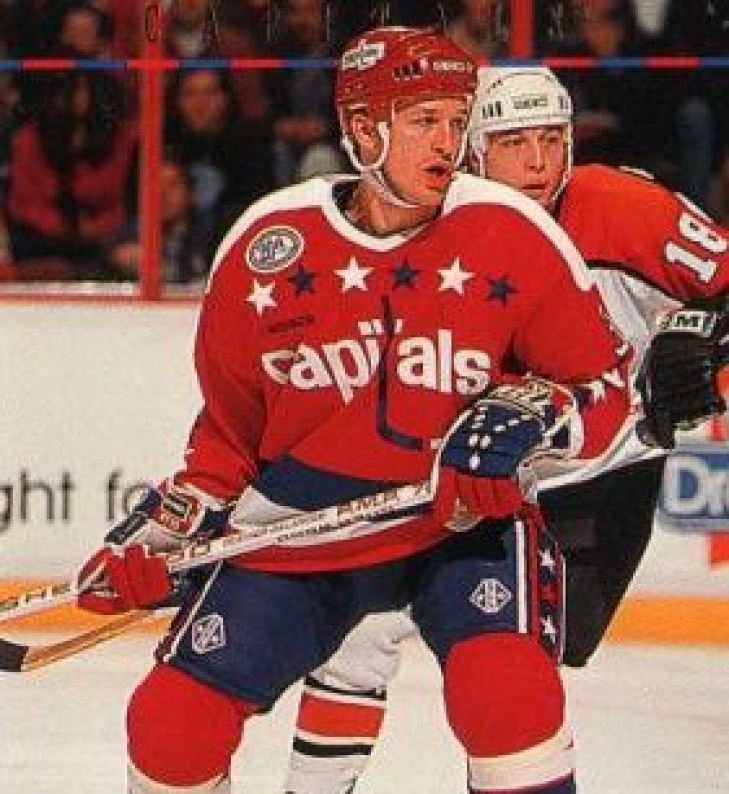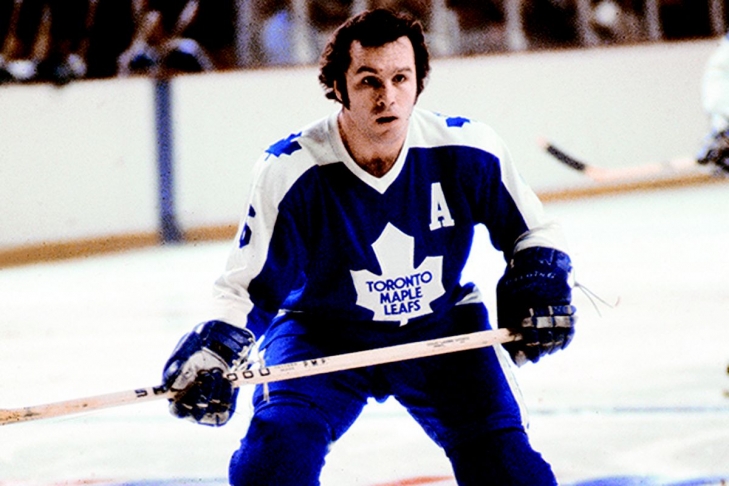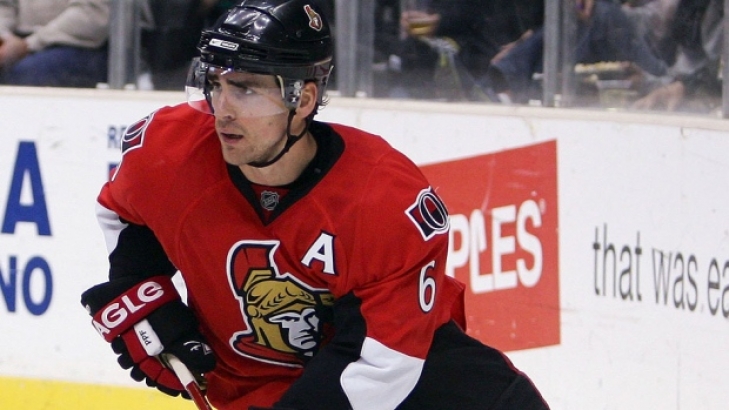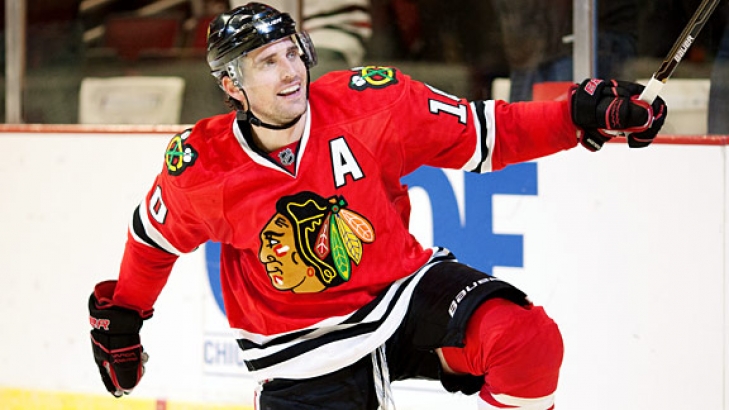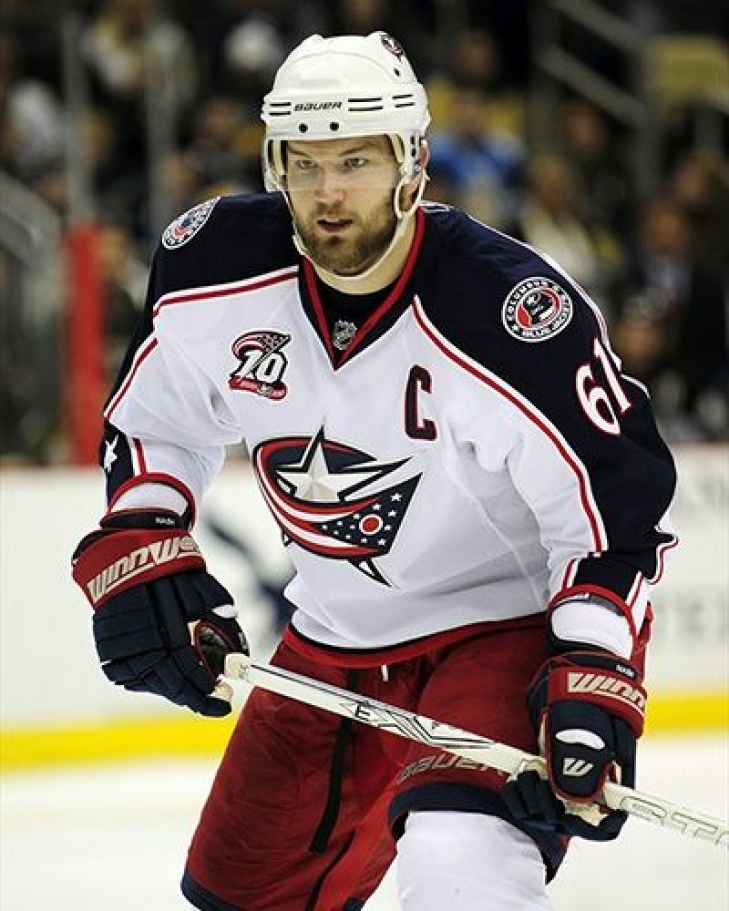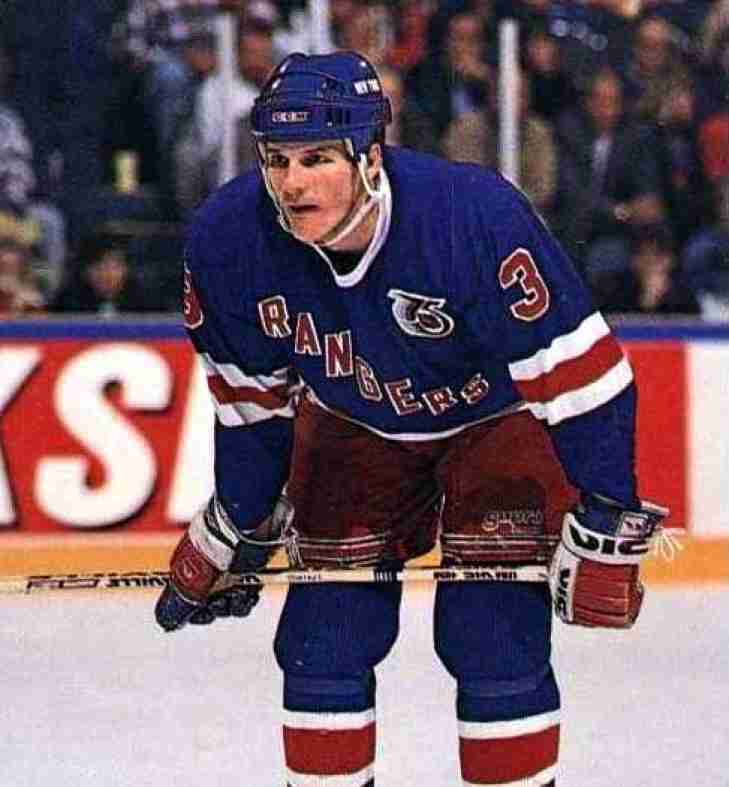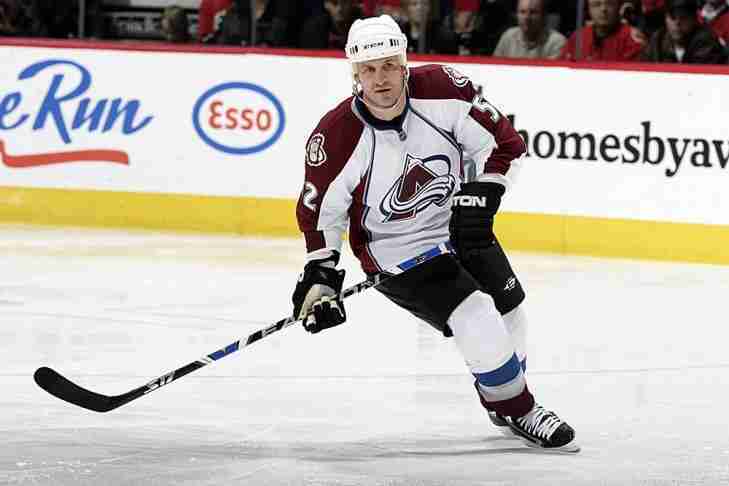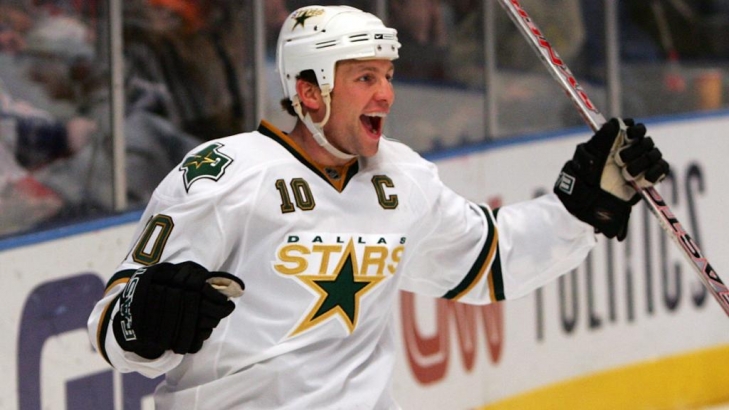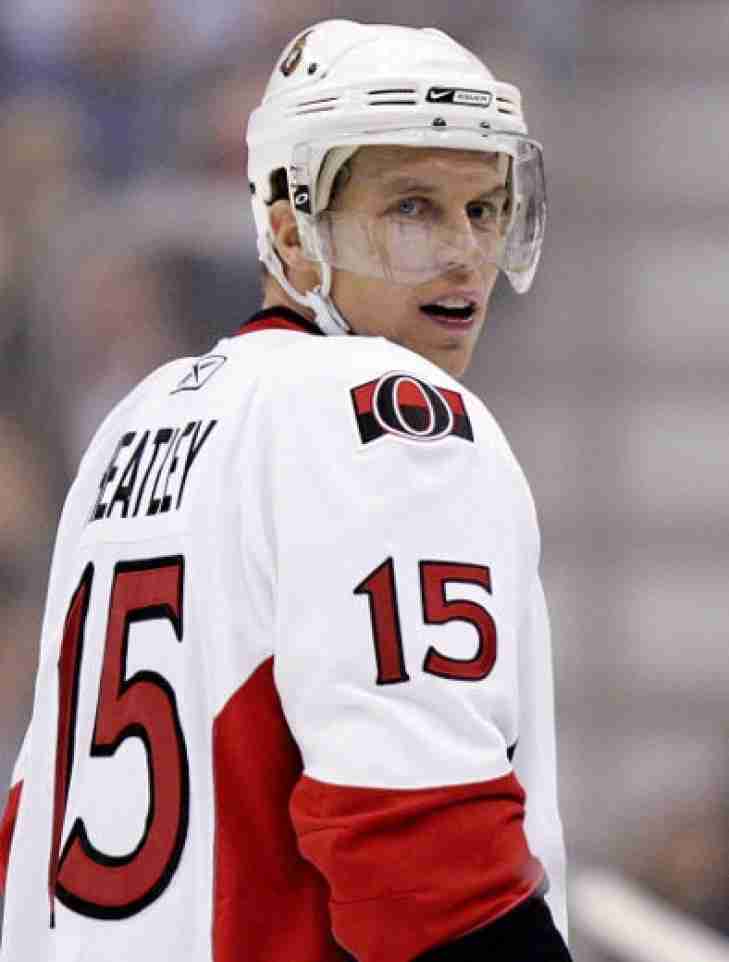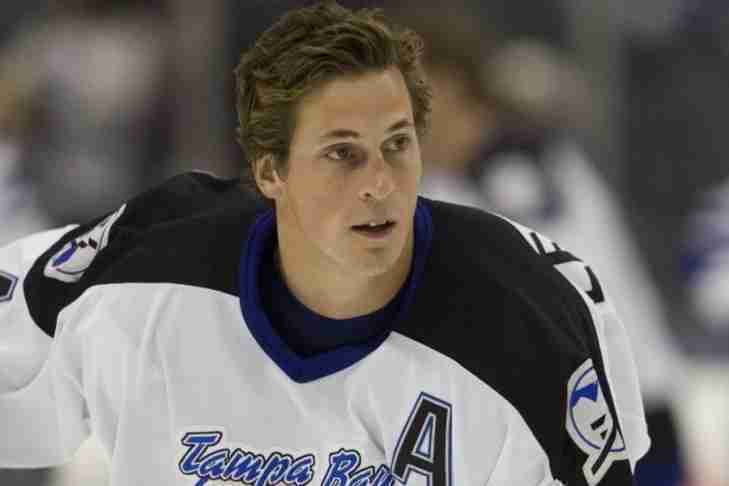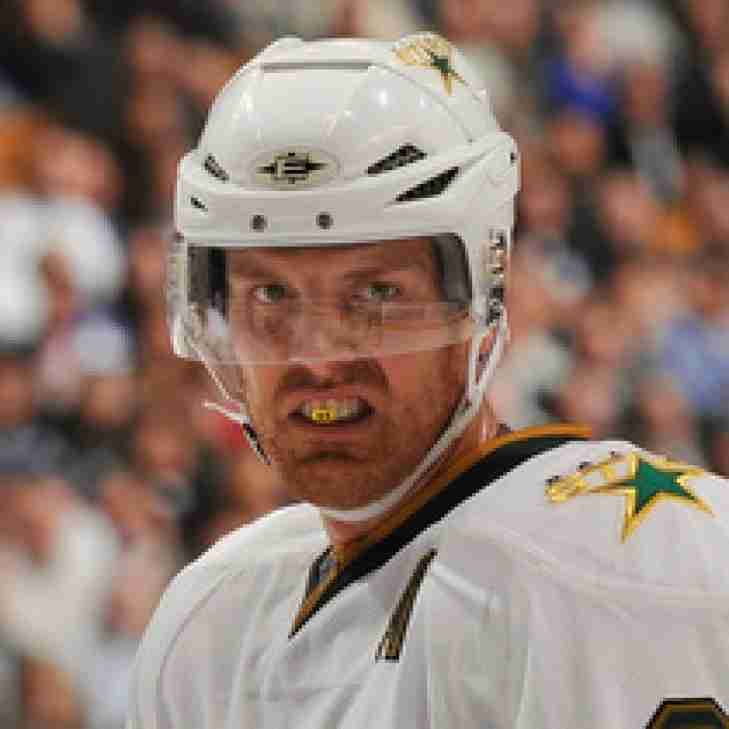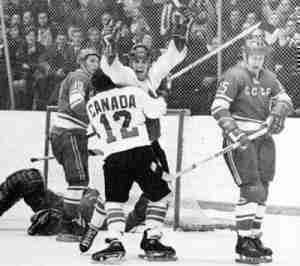12. Eric Staal
Known for his patience, power, and high hockey IQ, Eric Staal was not a flashy player, but he was a winner and a valuable member of every team he played on.
Staal was the second overall pick in the 2003 Draft, and the Canadian went right to the parent club of the team that drafted him, the Carolina Hurricanes. He had a magical second year in hockey, setting what would be personal bests in Goals (45), Assists (55), and Points (100), while earning a Second Team All-Star. More importantly, he anchored Carolina to their first Stanley Cup. Staal would later become Carolina’s captain, though he never had the same numbers that he did in 2005-06. Still, Staal had at least 70 Points in the five years that followed, and was a four-time All-Star in that time frame.
Staal was traded to the New York Rangers late in the 2015-16 Season, and in the off-season, he joined the Minnesota Wild. Over the next four years, he recorded 240 Points in 311 games, earning two more All-Star Game appearances. He was traded to the Buffalo Sabres in 2021, but age and injuries took their toll, and he bounced around from the Sabres, to Montreal, to Team Canada in the 2022 Olympics, and finally a year with the Florida Panthers.
Internationally, he became a member of the Triple Gold Club, securing Gold with Team Canada at the 2007 Worlds and the 2010 Olympics.
1. Patrice Bergeron
Patrice Bergeron is widely considered the greatest defensive forward of the modern era. In fact, many people consider him one of the top five Boston Bruins players of all time.
Bergeron spent his entire career playing for the Boston Bruins, where he immediately established himself as a leader. He has won a record six Frank J. Selke Awards for being the best defensive forward in the game and was a finalist for the award 12 times. Additionally, he has won the King Clancy Award and the 2020/21 Mark Messier Leadership Award.
Bergeron was not just a defensive player; he also possessed impressive scoring skills. He scored 1,040 points and famously scored the game-winning goal in Game 7 of the 2011 Stanley Cup Finals, helping the Bruins win the championship.
Bergeron was so gifted that he only had one season with a negative Plus/Minus and was the league leader in 2011/12. Although he only finished in the top five in Hart voting once (fifth in 2013/14), his value to the Boston Bruins on every shift was immeasurable, and he proved to be a gem for the team throughout his career.
9. Carey Price
The Montreal Canadiens are one of the most iconic franchises in hockey and hold the record for the most Stanley Cup wins. Montreal, an Original Six team, has had many legendary goalies, but Carey Price holds the record for the most wins in a Habs uniform - 361 games.
Price was the top goalie in the Western Hockey League and was highly rated in the draft. He debuted for the Canadiens in 2007 and quickly became their lead goalie, earning a spot on the All-Rookie Team. Although he had some ups and downs in the next two seasons, Price led the NHL in wins (38) in the 2010-11 season and had his first sub-2.50 GAA year (2.35). He was fifth in Vezina and seventh in Hart voting, cementing his place as the star the Canadiens had hoped for when they drafted him.
Price continued to impress, earning top-ten Vezina Trophy finishes in 2012-13 (10th) and 2013-14 (4th). However, his 2014-15 season was nothing short of legendary, as he led the NHL in wins (44), save percentage (.933), goals against average (1.96), and goalie point shares (16.2). He swept the awards, winning the Vezina, William M. Jennings, Hart, and Ted Lindsay Award. This came just a year after he helped Canada win a gold medal at the 2014 Winter Olympics in Sochi.
Price suffered an MCL sprain the year after his monster campaign, limiting him to just 12 games. However, he bounced back with a third-place Vezina finish in 2016-17, where he had a 2.23 GAA over 62 games. He had another great year in 2019-20, anchoring Montreal to an improbable Stanley Cup Final, where they lost to Tampa Bay in the Finals. The fact that Montreal even made it there was a testament to Price's skills.
Sadly, that was likely the last great moment of Price's career. He faced personal and health issues afterward, and though he returned for five games in 2021-22, it was clear that his career was over. Price won the Bill Masterson Award that year, and he left the NHL, establishing his legacy as one of the greatest goalies of all time.
14. P.K.Subban
From Toronto, P.K. Subban won two Gold Medals in World Junior Hockey action before he joined the team that drafted him in the second round in 2007, Montreal. Subban was an All-Rookie in 2010-11, and two years later, in the strike-shortened 2012-13 campaign, he won the Norris Trophy on the strength of 38 Points in 42 Games. With the Habs, Subban was a First Team All-Star not only in his Norris year but also two years later.
In a shocking trade, Subban was sent to Nashville in a deal that saw fellow defensive star Shea Weber go the other way. Subban remained strong in his new environment, collecting Second Team All-Star honors in 2018, a year after he propelled the Predators to their first Stanley Cup appearance. The charismatic superstar concluded his career with two seasons in New Jersey, where he won the King Clancy Award in his final year.
In addition to his two Golds as a Junior, Subban won Gold for Canada in the 2014 Olympics and back-to-back Golds in the 2008 and 2009 World Juniors.
7. Ryan Getzlaf
Getzlaf was a First Round Pick in 2003, and he would debut for the team two years later with a 39-Point rookie year. A member of the 2007 Ducks team that won the Stanley Cup, Getzlaf's play blossomed the following season, where he began a four-year streak of 50-plus Assist seasons, and he would hit that threshold four additional times.
A Second-Team All-Star in 2014, the Center finished second for the Hart Trophy that year and was tenth in Frank J. Selke voting. Getzlaf also received Selke votes in seven other seasons.
Getzlaf is already the all-time Ducks leader in Assists (737) and post-season Points (120); in his final year in the NHL, 2021-22, he overtook Teemu Selanne in Points (1,019). He is also a decorated performer in International competitions, helping Canada win two Olympic Gold Medals (2010 & 2014) and Gold in the 2016 World Cup of Hockey.
3. Patrick Marleau
So…what does longevity mean?
As far as we are concerned, it should matter a lot!
204. Jay Bouwmeester
Many say Jay Bouwmeester is one of the most gifted skaters in hockey history. We have to agree, and would gladly add that Bouwmeester is one of the more underrated players in the game.
The Canadian Defenseman was the third overall pick in 2002 by Florida, and was an All-Rookie after making the Panthers after being drafted. Bouwmeester was a two-time All-Star with Florida, and he twice received Norris Trophy votes. He would be traded to Calgary in 2009, and at the 2013 Trade Deadline, Bouwmeester was dealt to St. Louis, providing a veteran presence to the team that won the Stanley Cup in 2019.
Bouwmeester’s career ended abruptly when he suffered a cardiac arrest during a game against Anaheim in February of 2020. He never played again, thus ending one of the most sneaky good careers in hockey. As a professional, Bouwmeester scored 424 Points in 1,240 Games.
If Bouwmeester never becomes a serious contender for the Hockey Hall of Fame, the IIHOF could look at him, as he won five Gold Medals (one Olympics, two World Cups, two Worlds) while playing 57 Games for Team Canada. That is one hell of an international career.
293. Michael Peca
Easily one of the best defensive forwards for years, Michael Peca would finish in the top five in Frank J. Selke Award voting every season from 1996-97 to 2003-04. The first year of that streak was when he
271. Sylvain Cote
131. Ron Ellis
213. Wade Redden
171. Patrick Sharp
85. Rick Nash
Rick Nash was the first overall pick in the 2002 NHL Draft, and he would quickly prove to the Columbus Blue Jackets that they made a good selection. As a sophomore, Nash would put he puck in the net 41 times, which was enough to win the Maurice Richard trophy for the most Goals in a Season. Nash would never win that award again, but he would have seven more 30 Goal campaigns, two of which were at least 40.
189. James Patrick
With over 600 NHL Points from the blueline in the NHL, James Patrick eclipsed the 50 Point mark four times. Patrick was best known for his time with the New York Rangers, where he finished twice in the top ten in Norris Trophy voting and represented Canada at the Olympics and the Canada Cup. Frankly, if you played for Canada in any Canada Cup, you must have been pretty good!
81. Adam Foote
One of the most interesting Hall of Fame cases belongs to Adam Foote, a player who was never an All-Star in his professional career and never finished higher than tenth in Norris Trophy voting. Despite this, there is no doubt that Foote carried significant value for every team he played on, and his contributions would never really reflect in a box score.
294. Brenden Morrow
123. Dany Heatley
41. Vincent LeCavilier
87. Brad Richards
43. Paul Henderson
With 477 career NHL points (and 283 in the WHA), the professional statistics speak to a very good player, but not that of a Hall of Famer. This is very much the consensus of most hockey pundits and fans alike. However, we are all familiar with the intangible legacy of the 1972 Canada/Soviet Union Summit Series. Coming off his most productive NHL year with 38 goals, Henderson was an afterthought selection to Team Canada. Henderson responded with the best hockey of his career, leading the tournament with ten points. Of course, it was that final point, a goal with thirty-four seconds remaining, that he will be known forever for. That goal won the series and made him an icon in Canada. It is a moment that is played over and over again on Canadian television and will be replayed for generations to come. When critics say that Paul Henderson would not be in the Hall of Fame discussion if he hadn’t scored “the goal,” but what they have to remember is one thing: HE DID score that goal.



